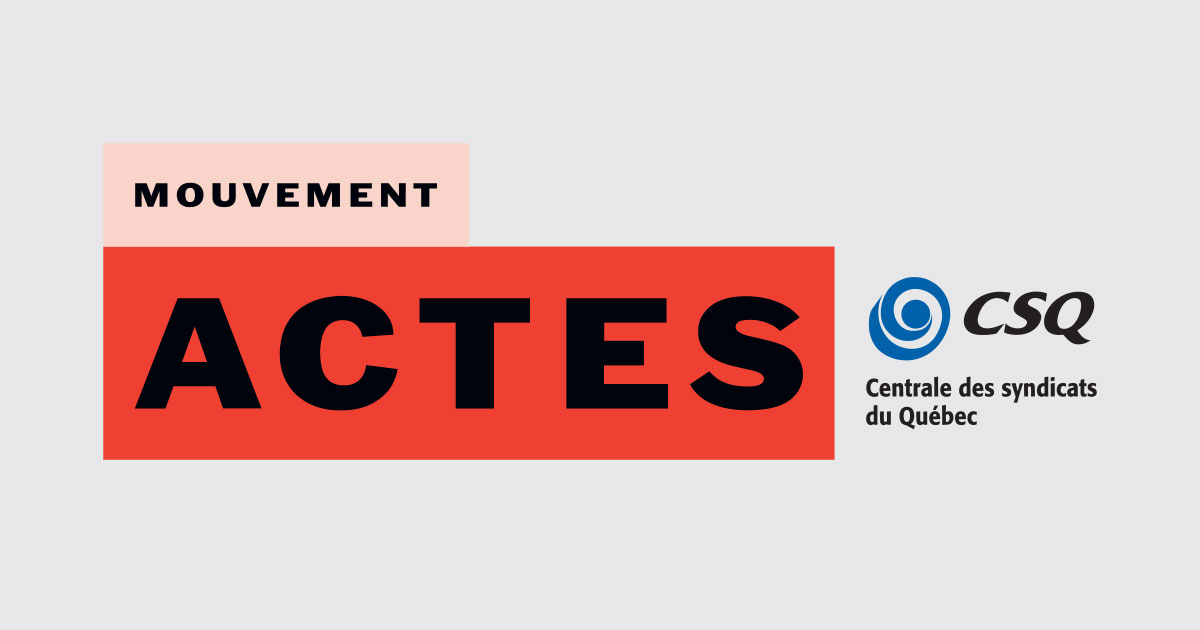The need to find unconventional ways to reach and mobilize CSQ members isn't new. Discussions on the topic had been underway well before the pandemic. However, the health crisis accelerated the analysis, as in-person meetings and union assemblies couldn't happen as before.
This desire to do things differently has been present for many years. But it was really identified following the 2012 Congress, when the theme of "union renewal" was discussed. This process takes into consideration local realities in the hopes of doing better with what's more a bottom-up than top-down approach.
The idea behind this renewal is to inform and mobilize the members at a local level so that awareness and mobilization are not "imposed by the CSQ," but come from the communities.
For the members to feel heard and for them to mobilize around issues dear to the Centrale, we need to reach them. And to manage that, non-traditional tools, like digital activism and democracy, need to be put forward.
Convergence of the fights
For over 27 years, the CSQ ACTES Movement (which used to be called Brundtland Green Schools Movement) has acted for a more ecological, more peaceful, more democratic society, with greater solidarity, by promoting the involvement of youth and adults.
To know how to reach them, the Movement surveyed its members through consultations and focus groups. Thanks to the consultations, the Movement realized that starting from the members' values is a good way to make them want to get involved with trade unions
As part of the consultations, the participants mentioned that the ACTES Movement gave a positive image of unionism. Why? Because it offers an inspiring project, that of a more ecological, peaceful and democratic world, and puts people in action in their environment to collectively build it.
Young people are notably very sensitive to the environmental, solidarity, pacifism and democracy values that the CSQ addresses head on with the ACTES Movement. The younger members seem to want not to limit their vision to working conditions, but expand it to living conditions in society as a whole.
The future of activism even goes through a "convergence of the fights". We must break the silos between the different causes, even if it's a way to do things that isn't traditional. Young activists know very well how to do this.
Digital tools and turnkey solutions
The CSQ, through the ACTES Movement, listened to the youth and their concerns by changing its way of doing things, including by uniting with groups that aren't necessarily traditional allies. For example, the Centrale is now part of the Front commun pour la transition énergétique, which combines more than 90 organizations. The CSQ and the Front commun have joined forces because they share the same values.
That's not all! With the pandemic, the ACTES Movement worked twice as hard on the digital tools' side by creating a public version of their networks. Their Facebook Live videos reach no less than 8,000 people, and not only Centrale members. This popularity translates in adhesions for the ACTES Movement, which constantly increase.
The Movement also organizes live streamings on different topics related to its values. It recently produced a video titled "Imaginer la justice climatique " that primary, secondary and CEGEP teachers can show in their classes without any prior preparation. Incidentally, it's the idea of an ACTES committee member, a primary school teacher. On top of being easy to put in place, these events are informative and allow the CSQ to shine!
TO KNOW MORE
To learn about the ACTES Movement's projects [in French]: actes.lacsq.org.
To watch and share the video titled "Imaginer la justice climatique " [in French]: facebook.com/mouvementactes.

